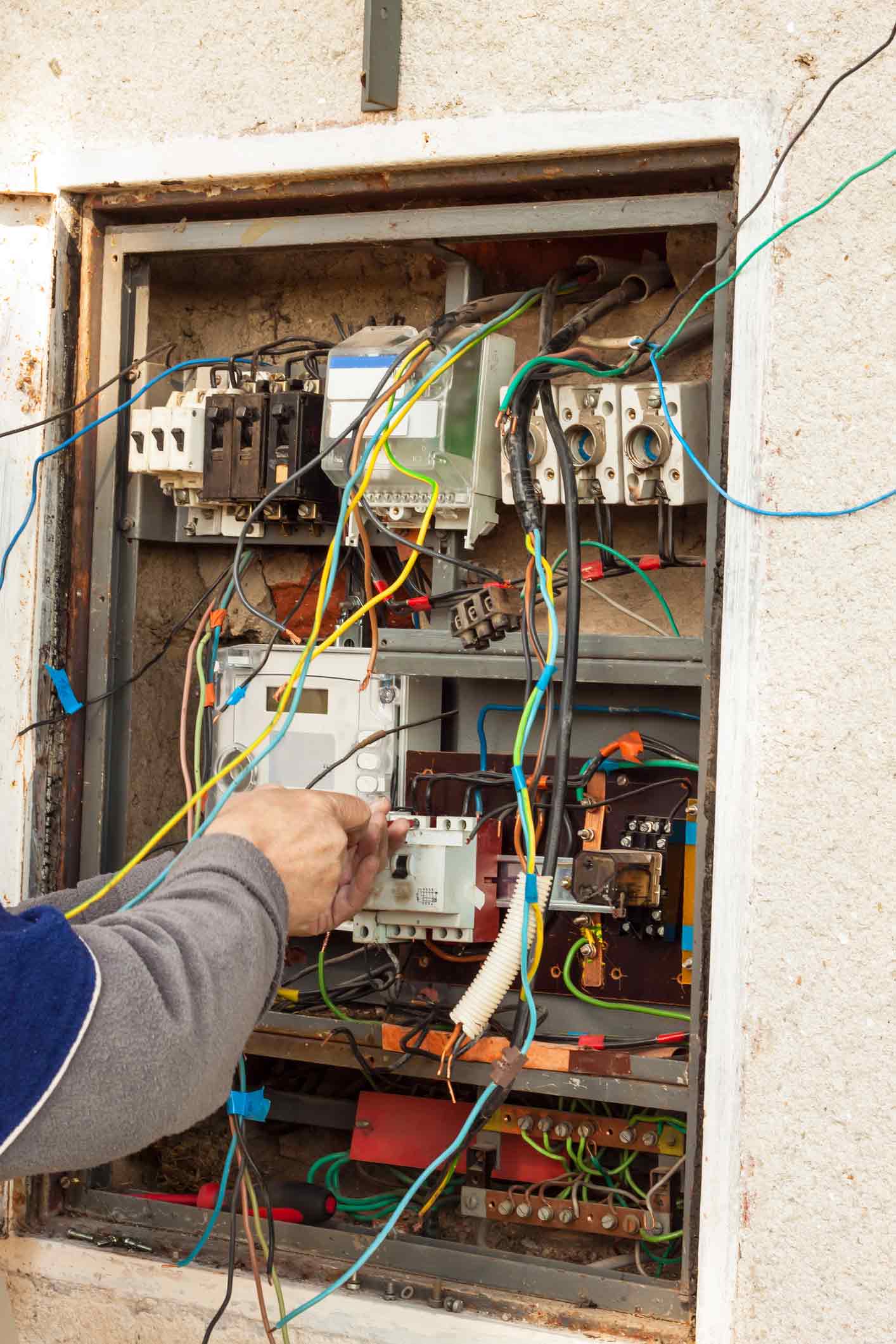What to Check on an Old House's Electrical System
If you're purchasing an old house, make sure the home's electrical system is in safe and working order before you close on the house. Have an electrician inspect the system, and specifically ask them about these aspects of the house's wiring.
Fuse Box or Circuit Breaker
Find out whether the house has a fuse box or circuit breakers. While both are technically safe, circuit breakers are more common today than fuse boxes for a couple of reasons.
First, circuit breakers are safer in home settings where homeowners sometimes try to use do-it-yourself solutions when problems arise. Fuses are generally safe in and of themselves (and even more sensitive than circuits), but homeowners sometimes use tinfoil or other techniques to bypass fuses. This creates an unsafe situation - and never should be done!
Second, circuit breakers are easier to reset when a power surge causes the system to trip. Resetting a circuit is as simple as turning a switch fully off and back on again.
If you want to reset a fuse, you must take out the blown fuse and install a new one. This means you need to have fuses on hand, and you must purchase a new fuse for every time one blows. If a system keeps tripping for some reason, you can go through quite a few fuses before the problem becomes apparent, which increases the cost of repairs.
Should the home you're looking at have a fuse box, you might want to ask the seller if they'll pay to switch the box over to an electrical panel with circuit breakers. They might claim that the box is safe, but a circuit breaker is a more modern way to wire a home. Even if an electrician says a box is safe, you probably will still want to change the system over soon after your purchase.
Capacity of the Circuit Breaker
Just because an older house has an electrical panel with circuit breakers doesn't mean the control panel of the electrical system is capable by today's standards.
Older homes' electrical panels often have lower capacities than today's systems because there used to be fewer appliances and devices that consumed electricity. As high-end kitchen appliances, larger stoves and refrigerators, and computers became more common, homes began to need more electricity to power all of these items.
Electrical panel capacities are measured by amperage, and most new panels come with a 100-, 150- or 200- amperage capacity now.
By today's standards, a home that's under 3,000 square feet and doesn't have a central air conditioner should have an electrical panel with a 100-amperage capacity. A home that has more than 2,000 square feet and does have central air needs a 200-amperage panel.
Older homes, however, might have only a 60-amperage panel. Such a panel would be able to support just one major appliance at a time and is insufficient for today's homes. If you're interested in an older home that has such a low-capacity panel, have the seller pay to upgrade the panel or expect to hire an electrician to make the change after you purchase the property.
Type of Wiring
Beyond the electrical panel, you should also have an electrician check the type of wiring. In particular, ask if the house has knob and tube wiring anywhere.
Knob and tube wiring is an old type of wiring that was widely used up until 1940 and was still installed until 1975. In theory, the system is safe if it's properly maintained by a knowledgeable electrician. In practice, homeowners often don't maintain their home's electrical systems properly.
If a house has knob and tube wiring, have an electrician carefully inspect the entire system to see whether it is safe. If there are any areas in disrepair, make sure they're replaced before you move in.
If you need help assessing the electrical system in an old house, contact Express Electrical Service .

